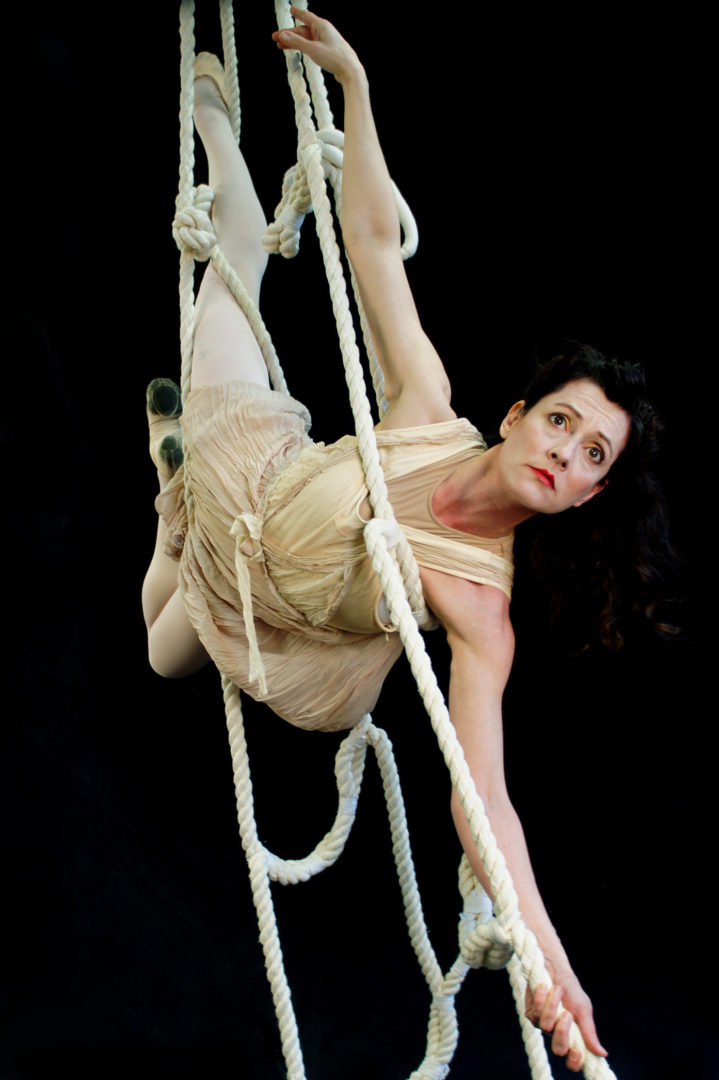For 26 summers, the Fringe Festival has taken over the downtown core, bringing a slew of independent plays to Toronto’s small theatres. Among the 150 productions that were staged during this year’s festival were three shows that explored Jewish identity, history, and culture, though they did so in markedly different ways.
One of the three plays was She’s Black, He’s Jewish, They’re Married, Oy Vey!, a comedy performance by Nai’mah Hassan and Steve Epstein, who refer to themselves as “The Black and The Jew” (I’ll let you figure out who is who). The show was part stand-up, part sketch comedy, part motivational speech, all based on the ups and downs of the couple’s 27-year marriage.
Epstein and Hassan presented their audience with a set of marital guidelines that they have deemed “Black/Jew/Love Technology,” though their advice was hardly race-specific: be honest with your spouse, be sensitive, and be generous, especially in bed.
Epstein and Hassan made for a raucous, dynamic pair, and if the fervency of their on-stage displays of affection is any indication, they are still very much in love. But for the most part, the couple’s humour was an unsatisfying mix of squirm-inducing raunch and tired racial stereotypes. Jews, according to Epstein and Hassan, are neurotic and cheap, while black people are apt to complain and – well, let’s just say “well endowed.”
The duo’s insights into interracial marriage were equally thin, making it seem that their greatest struggle as a mixed-race couple has been determining whether or not it’s appropriate to affectionately refer to your black partner as Buckwheat of The Little Rascals fame (turns out it isn’t). It was fun to watch Epstein and Hassan riff, but their thoughts on race and love were all surface and no substance.
On the opposite end of Fringe’s dramatic spectrum was A Simple Twist of Faith, a musical that was staged at the historic Kiever Synagogue. The play, which was inspired by a true story, follows the friendship of a Jewish-American solider named Alex Lurye, and an older, German Jew, who is referred to simply as Herr Rosenau. The two meet when Lurye, who is stationed in Germany during WWI, visits Rosenau’s synagogue one Friday night. He is initially greeted with hostility, but Rosenau eventually decides to invite Lurye into his home. They share a Shabbat meal and form a bond that is tested many years later, on the cusp of WWII.
Most of the show’s action was played out in monologues by the two principle actors, and the result was a little stilted. What was perhaps the most interesting angle of the story – the animosity between two Jews who find themselves on opposite sides of a war – was brushed over quickly, and the Shabbat meal that so affected the main characters was only described in brief.
Still, the strengths of the play outweighed its shortcomings. Adam Jesin and Evan Malach – who played Lurye and Rosenau, respectively – are fine vocalists, and the production made creative use of its unique venue. The first scene of the play was staged in the Kiever’s courtyard; when Lurye visits the German shul, the audience followed him into the Kiever’s sanctuary. Later on, when Rosenau must hide from Nazi soldiers, the audience ran with him into the basement. The immersive staging gave life to an already compelling story about the lasting impact of small acts of kindness.
Tikva’s Orchestra was another Fringe play that explored humanity during wartime, although in a very different way than A Simple Twist of Faith. Tikva’s Orchestra is a physical theatre performance that centres on a cellist who is determined to save her fellow orchestra members from Nazi sweeps during Kristallnacht. Not a single word was spoken throughout the entire show; instead, the narrative unfolded through dance and aerial acrobatics, performed by Alisa Walton and Thomas Morgan Jones.
The show was a beautiful sensory experience. Its choreography was executed meticulously against the backdrop of a symphonic, haunting score by composer David Mesiha. The stage was kept almost entirely dark, with the exception of soft pools of light that fell on the performers, and the show was rife with other visual touches. When Kristallnacht begins, Tikva is covered with the skeleton of an umbrella strung with shards of broken glass. At the start of the performance, Morgan Jones—who played the orchestra’s conductor, among other character – juggled three scarves that floated through the air in mesmerizing tufts of colour.
Walton was controlled, but vulnerable as the show’s titular character. She glided across the stage and maneuvered through suspended ropes with grace, but trembled and faltered when her character was pursued by a Nazi officer. As Tikva’s name suggests, Tikva’s Orchestra was a performance about hope. But the show’s conclusion also forced the audience to ask if, in the face of utmost evil, hope can ever prevail.
